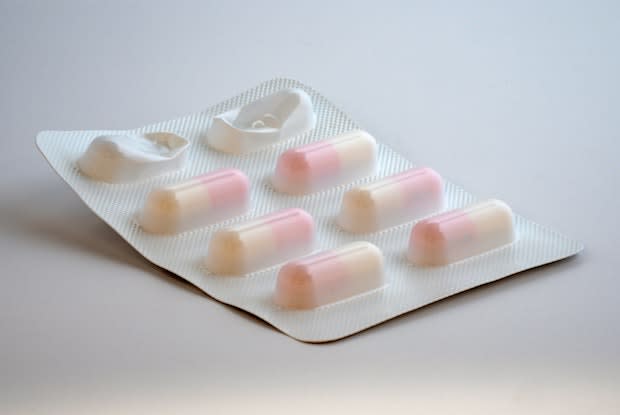Table of Contents
I. The Dangers of Ulcerative Colitis
IV. Primary Sclerosing Cholangitis
The Dangers of Ulcerative Colitis
Ulcerative colitis (UC) occurs when the immune system attacks the large intestine, causing damage to the colon lining. UC symptoms do not appear constantly but flare up periodically. The damage that UC does to your colon can be permanent and lead to health complications, so it is important to treat it as early as possible.
Medications like Lialda (mesalamine) and Asacol (mesalamine) can treat inflammation and reduce the risk of permanent damage. For more severe stages of UC, Medrol (methylprednisolone) may be prescribed for pain relief. Ulcerative colitis can lead to complications like osteoporosis, colorectal cancer, swollen or perforated colon, and primary sclerosing cholangitis (PSC). Talk to your doctor today for ways to treat UC. Read on to learn about UC-related complications. [1]
Ulcerative colitis can cause severe inflammation in your colon. Some people with UC need to have their colon surgically removed. As a result, it may be harder for the body to absorb the calcium and vitamin D necessary for strong bones. Inflammation can also impact your body’s ability to rebuild new bone. For these reasons, up to 60 percent of people with UC develop osteoporosis (a disease of weakened bones). [1]
How UC Affects the Bones
Get savings updates for Medrol
Corticosteroids are not prescribed often, even though they can be effective in reducing UC symptoms. This is because corticosteroids can contribute to osteoporosis by weakening the bones. Having osteoporosis increases bone fracture risk. Osteoporosis is diagnosed with a bone density test. [1]
Inflammation and Cancer
The constant inflammation in the intestine caused by UC can make the cells in your colon turn cancerous. The risk of UC causing cancer is relatively low, but the risk of colorectal cancer increases after eight to 10 years of having UC. Having a family history of colorectal cancer can also increase your risk. If you have long-term severe colon inflammation, it is advised to undergo a colonoscopy every one to two years to screen for colorectal cancer. A colonoscopy involves an examination of your lower intestine for any abnormal tissues. [2]
The bile ducts in the body are tubes that transport digestive fluids from the liver to the small intestines. If these bile ducts are damaged and scarred, primary sclerosing cholangitis (PSC) can occur. PSC is a common complication of UC because both conditions involve chronic inflammation. If the bile ducts scar from inflammation, they can narrow and back up bile in the liver. This can severely damage the liver over time, and a liver transplant may be required. [3] A swollen colon is a very dangerous complication of UC. This condition is also called toxic megacolon. It is rare, but toxic megacolon can cause the colon to enlarge and break open. This can happen if the colon traps too much gas and swells up. If the colon bursts, bacteria can enter the blood and cause septicemia (blood infection). [4] If you experience symptoms such as swelling in the belly area, fever, or a rapid heart rate, you may have toxic megacolon and should seek your doctor’s help right away. A similar UC complication can occur if sores develop from inflammation in the colon. These sores can weaken the colon wall to the point of rupture. If this occurs, you have a perforated colon. Perforated colons are a medical emergency. As mentioned above, bacteria can exit the colon and enter the bloodstream, causing serious infections. Surgery is required to close the hole if you have a perforated colon. [1] Ulcerative colitis can cause the colon to bleed, so you may notice blood in your bowel movements. Bloody stools are one of the identifying symptoms of UC, but they can lead to anemia if it is severe. Anemia is characterized by a drop in red blood cells. Red blood cells are vital for carrying oxygen throughout the body, and a lack of them can cause fatigue and shortness of breath. If you observe excessive blood in your stool, call your doctor. [1] There are some things you can do to reduce your risk of a UC complication. Your doctor may prescribe an ulcerative colitis diet on top of medications like Lialda (mesalamine), Asacol (mesalamine), and Medrol (methylprednisolone). Although there is no way to cure ulcerative colitis permanently, early treatment can slow the progression of this disease and prevent dangerous health complications. The content in this article is intended for informational purposes only. This website does not provide medical advice. In all circumstances, you should always seek the advice of your physician and/or other qualified health professionals(s) for drug, medical condition, or treatment advice. The content provided on this website is not a substitute for professional medical advice, diagnosis, or treatment.
Primary Sclerosing Cholangitis
Swollen & Perforated Colon

Anemia
